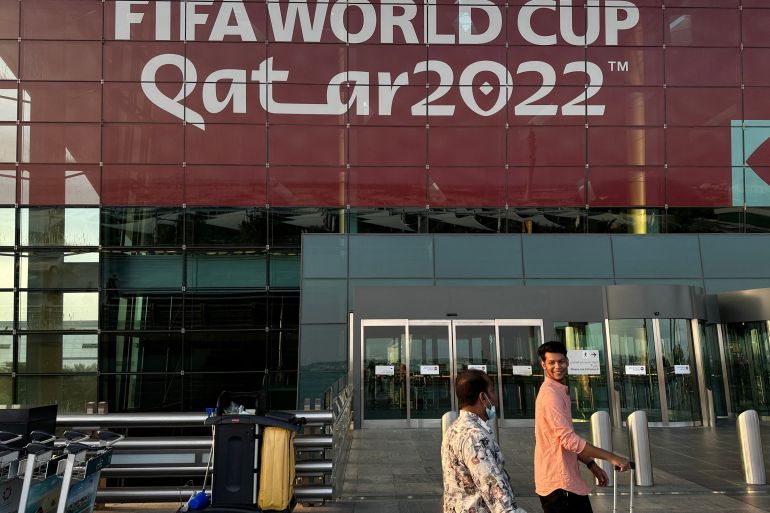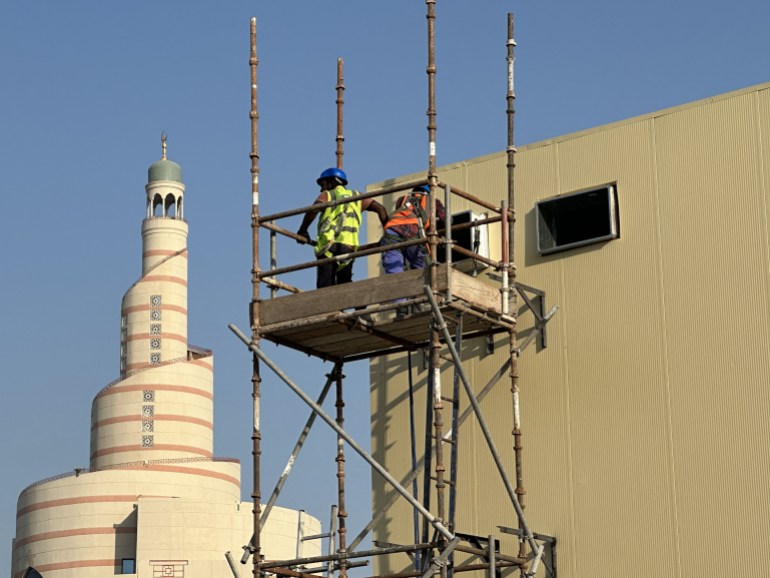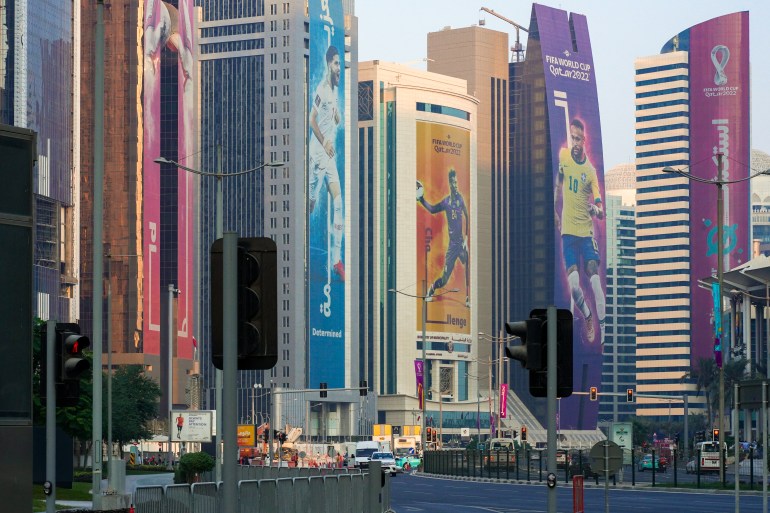Qatar official slams ‘hypocrisy’ of World Cup criticism
The foreign minister says calls to boycott the 2022 World Cup are ‘unfortunate’.

Qatar’s foreign minister has denounced the “hypocrisy” of people calling for a boycott of the football World Cup to protest against alleged human rights in the Gulf country.
Minister of Foreign Affairs Sheikh Mohammed bin Abdulrahman Al Thani told Le Monde in an interview published on Thursday that most of the world was looking forward to the tournament that starts in Doha this month, and that the “attacks” were being made “by a very small number of people”.
Keep reading
list of 4 itemsCristiano Ronaldo scores winner in record 200th game for Portugal
Kylian Mbappe informs PSG he will not extend contract: Media
Qatar World Cup: Watchdog says FIFA’s carbon-neutral claims false
“It is frankly unfortunate. The reality is that the world is looking forward to this celebration. Over 97 percent of the tickets have been sold. Among the 10 countries that bought the most tickets, we find European countries like France,” Al Thani, who is also the deputy prime minister, said.
Qatar is the first country in the Middle East to host the football World Cup but it has faced a wave of criticism since it was awarded the tournament in 2010. In particular, its treatment of migrant workers and its human rights records have been under the spotlight, leading to calls for teams to boycott the tournament altogether.

The country faced widespread criticism from human rights groups for its previous use of the kafala system – under which workers are tied to an employer whose consent they need to change jobs in the form of a No Objection Certificate (NOC) – a law that rights activists have argued tied their presence in Qatar to their employers and led to abuse and exploitation.
The kafala system was abolished in August 2020 in Qatar amid other landmark changes, including the introduction of a minimum wage.
Several Gulf countries have, in recent years, enacted reforms to their kafala systems, which were once prevalent across the six member states of the Gulf Cooperation Council.
‘Double standard’
Responding to a query on why it took so long for Qatar to abolish the kafala setup, considering all the stadiums had been built by 2020, Al Thani said such reforms “take time”.
“This is true for any country – it is not unique to Qatar. Of course, there are still flaws and we are determined to fix them,” he said.
However, the deputy prime minister said there was a “double standard” in “systematically” blaming the Qatari government for the problems facing labourers, while in Europe, “the slightest incident is blamed on the company”.

“I think there are some people who don’t accept that a small country in the Middle East is hosting such a global event,” he added.
‘Very welcoming country’
In the interview, Al Thani said Qatar was a “very welcoming country” and that the “entire world is welcome in our country”.
“All we ask is that fans respect our laws, just as we are expected to respect yours when we visit you,” he added.
The deputy prime minister said there would not be confrontations between security forces and fans unless certain behaviours put people in danger. “That is the only situation in which they would intervene.”
When asked what policy Qatar would adopt if players were to speak on non-sporting issues, Al Thani said they “will be free to do so, we will never stop anyone from expressing themselves”.
Several participating teams have highlighted the treatment of migrant workers in Qatar, including Denmark, Australia and England.
Meanwhile, the deputy prime minister said Qatar will continue to host sports tournaments in the future to help “unite” people.
“Our ambition is to do things that bring people together and unite them. Sport is an important tool to achieve this goal. Our country is ready to host major sporting events. The World Cup is just one example of this,” he said.
The World Cup will take place from November 20 to December 18.